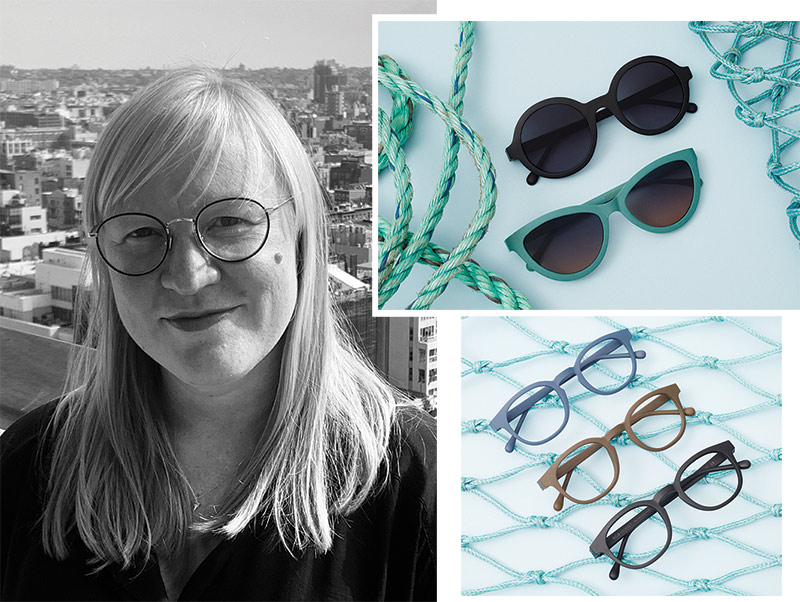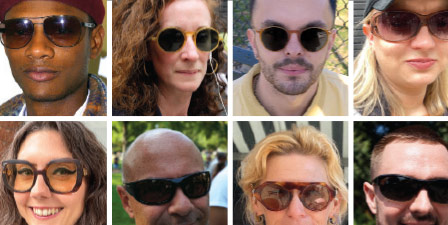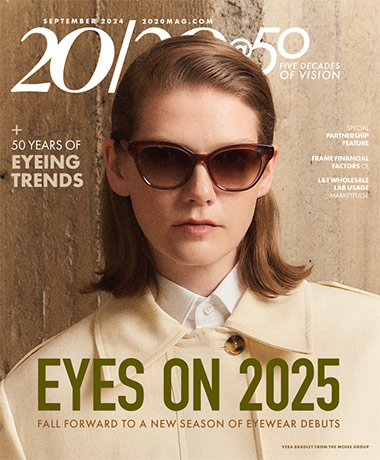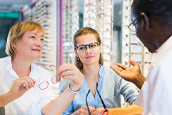A 20/20 EXCLUSIVE WITH MODO AMERICAS’ CEO REBECCA GIEFER ON THE NEW ECO OCEAN COLLECTION

By Jillian Urcelay
JU: Eco is known for using bio-based and recycled materials to create its frames. What materials are used in the newly launched Eco Ocean collection?
RG: Our Eco Ocean collection uses ocean based plastic, which is ultimately plastic waste like broken fishnets and ropes.
How does the process work for
collecting these ocean plastics and turning them into frames?
We partnered with Waste Free Oceans, an NGO, that collects ocean based plastic, and then the materials are sorted, cleaned, shredded and dried. It is then prepped with some pigment and an additional stabilizer material, which makes it recyclable for the future, and is then broken down into plastic granules that can be molded into frames.
This launch includes both sunwear
and optical styles. What was the design inspiration behind the new
Eco Ocean collection?
Eco is about expressing yourself and feeling positive. The Eco Ocean collection is an extension of this philosophy and is inspired by healthy living, using sustainable resources and providing well-designed functional solutions to both sunwear and optical.
How does Eco’s packaging align with its sustainable message?
Sustainability is at the center of the Eco brand and is part of every element, including packaging. Working from inside out, our frames made of sustainable materials are placed in biodegradable cornstarch polybags. This is placed in a frame case made of recycled plastic, which is encased in an outer box made of recycled cardboard.
Which nonprofits are Eco currently partnered with, and how have these companies seen a difference since
you began working together?
The two nonprofits we work with are Trees for the Future and Waste Free Oceans, and both have had a significant impact on the future of our planet. Trees for the Future has enabled us to maintain our “One Frame, One Tree” program in which we plant a tree for every frame sold. Through this program, we have helped plant over 2.5 million trees as part of Trees for the Future’s greater effort in which they have planted 200 million trees worldwide. By partnering with WFO, we have removed over 30 tons of ocean based plastic from the oceans so far with commitment of continuing this annually.
Finally, why do you believe
other eyewear companies should
follow suit and start creating frames from sustainable materials?
We only have one Earth so we all have a responsibility to take care of it! We should all be looking to find ways to recycle more, use less single use plastics, and use recyclable and sustainable materials. When there is a chance to repurpose items that fill landfills or fall to the bottom of the ocean, let us find a way to use it without compromising design or quality. ■












